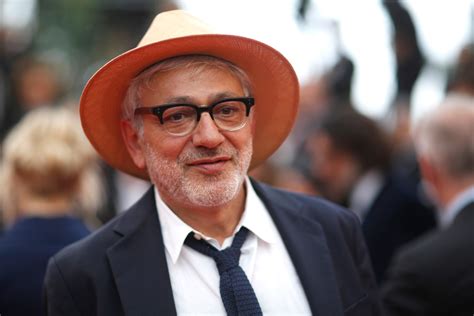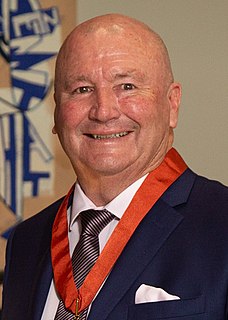A Quote by Elia Suleiman
To think that we are disconnected in some way serves the occupation whether it's through indifference or a distancing. It is a colonial approach of making you a subject and them the spectators. That is disturbing and counterproductive. And then suddenly they are surprised or find it alienating that the microcosmic effects of Palestine are happening in the U.S., France, and England, whether it's from the Islamic movements or immigration factors. Keeping a false purity of their countries will harm them eventually.
Quote Topics
Approach
Colonial
Counterproductive
Countries
Disconnected
Disturbing
Effects
England
Eventually
Factors
False
Find
France
Happening
Harm
Immigration
Indifference
Islamic
Keeping
Making
Movements
Occupation
Palestine
Purity
Some
Spectators
Subject
Suddenly
Surprised
Them
Then
Think
Through
Way
Whether
Will
Related Quotes
The Islamic world is not only suffering from the American occupation of Palestine and Iraq, it's also suffering from the unbelievable corruption in Afghanistan by Afghans themselves and also in Iraq - I'm just giving these 2 examples of countries which are under direct occupation; I do not mean at all to negate the terrible events that led to this or what's going on with the foreign occupation there.
I am surprised that in various countries, whether it's the U.K. or the U.S., you see isolationist tendencies that would tend to work against the co-operation, whether it's climate change, immigration, innovation, helping the very poorest. Those are things where you want to think across country boundaries and see a win-win-type solution.
What I don't know is whether there is a way politically that you can beat away these, some of these populist movements because in the end I don't think they really do provide answers. They ride the anger. But they don't really have the answers. Or whether this is an experiment we're just going to have to go through first.
I've been around a long time and I've found that these forms, whether it's the cartoon, or whether it's a play, or all these dying forms refuse to die. Something happens to rejuvenate them and it will certainly happen to the political cartoon. It will come back. But whether it's on the internet, or whether it's in some other form, however that works, whether it looks the way it looks now, or entirely different, I have no idea. And thank God I don't have to worry about it.
I think that there is a purity aesthetic, like "I just make art because I'm an artist and I can't help it. I don't care what the critics say." But different mediums have a different relationship with the public. If you're in a performing medium it's hard not to place some weight on whether or not people come to your shows, or whether or not they're enjoying them.
My guess is the big Chinese banks will be in 100?countries by then. They will have very sophisticated operations, and they may very well have bought banks around the world in countries that allow it. I mean, I don't think the American government would allow them to buy JPMorgan. But they will be able to buy a sizable big bank in the U.S. at some point. Whether they do or not, or if it's allowed or not, I don't know.
Palestine is about how we drink the water, whether we are being ecological or not. Palestine is our way of exercising our daily living. That's what's going to solve the problem of Palestine. It's also how we think of ourselves spiritually. This kind of disconnectedness is harmful to the person who is acting that way and is sometimes annoying.
A 1998 study was done in Hebrew by an Israeli scholar, Yosef Grodzinsky, and the English translation of the title is Good Human Material. That's what they wanted sent to Palestine for colonization and for the eventual conflict that took place some years later. These policies were somewhat complementary to the U.S. policy of pressuring England to allow Jews to go to Palestine, but not allowing them here. The British politician Ernest Bevin was quite bitter about it, asking, "if you want to save the Jews, why send them to Palestine when you don't admit them?"
I think that it drives from an emotional connection with everybody that pulls you through all of those events, whether it's the events or what would be more the action, or I guess the visual effects side of it. So it always starts with me from - emotionally - 'Why do you care about the people who are going through what they're going through?' Because it takes a hell of a lot to put them through that. So you better care for them when they're doing it.
































